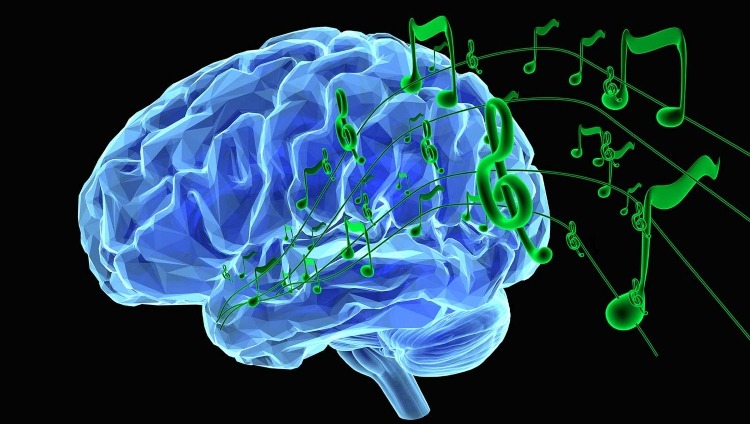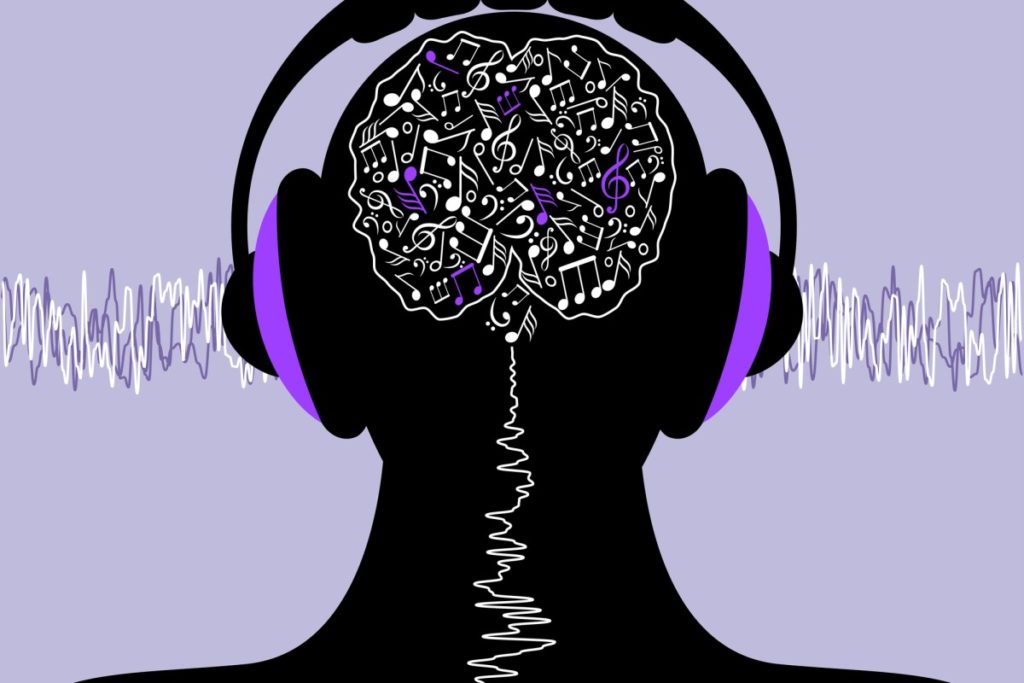Many have described music as soul healing, something that allows us to unwind and enjoy the present moment.
However, have you ever listened to a song that brought back a lot of memories? Well, let me inform you that this is because the brain is involved. For a variety of reasons, music is extremely effective at assisting us in storing memories and retrieving them later.
Therefore, strong emotions aid in the encoding of experiences in the brain and the formation of long-term memories. But first, let’s discuss the joys that music provides to the brain.
Increases Brain Chemicals
Music can affect one’s mood by increasing the synthesis of the neurotransmitter dopamine.
Dopamine, in turn, is the chemical that causes you to feel good when you eat chocolate or engage in a pleasurable activity. Furthermore, according to a study conducted by the National Center for Biotechnology Information, playing music with others boosts the release of the hormone oxytocin in the brain. Some call oxytocin the ‘trust molecule’ because it helps us bond with and trust others as well.
Increases Productivity and Creativity
An article published by The New York Times, suggests that employees who have control over their music choices accomplish jobs faster and come up with better ideas than those who do not.
Background music, in particular, boosts performance on cognitive activities and improves accuracy. Also, allows for more efficient completion of repetitive tasks. Music also boosts creativity by putting people in a pleasant mood and allowing their inner thoughts to flow freely.

Why does music bring back memories?
The brain’s medial prefrontal cortex connects an experience, a song and an emotion together. In addition, memory is crucial in bringing melodies and emotions together. Therefore, several types of memory exist, such as explicit and implicit memory.
Therefore, music that stimulates memories become more associated with certain periods of our lives. Cretien Van Campen, author of the Proust Effect: The Senses as Doorways to Lost Memories, says that “Music memories are often shared with peers.” The experience becomes more reinforced and significant when shared with another person or a group.
In addition, memory issues are common in people who have had traumatic brain injuries. Based on an article published by the BBC, music might help them remember the memorable experiences from their lives that they may have forgotten. For example, dementia patients might elicit strong memories by listening to songs they first heard when they were younger.
Improves communication
We engage multi-sensory skills through watching other musicians, reading lips, feeling, hearing, and performing music. A study finds that the brain’s modification as a result of the multi-sensory process of music training improves the same communication skills needed for speaking and reading.
Boosts your immune system
Researchers discovered that listening to and playing music boosts the immune system’s efficacy by increasing the creation of the antibody “immunoglobulin A,” natural killer cells which target invading viruses. In addition, music also reduces cortisol, the body’s primary stress hormone.
Assists in repairing brain damage
After a catastrophic injury, music can help to restore some of the brain’s cognitive, sensory, and motor functions. It energizes our minds to ease stress, evokes emotions, and, not to mention, soothes our spirits as well.
Boosts endurance
Music can boost athletic performance in two ways, according to a 2010 study led by sport psychologist C.I Karageorghis: it can either delay exhaustion or raise work capacity. The impacts of music, according to this study, can lead to higher levels of endurance, power, productivity, and strength.
Helps people living with Parkinson’s Disease
Parkinson’s disease is a movement illness that affects the brain. Stiff muscles, shaky walking, and difficulty with balance and coordination are all common symptoms. The disease has no known cure, and most medications can help most patients maintain a good quality of life. Music therapy helps people with Parkinson’s disease maintain function, to express creativity, and have a better quality of life through dancing programs, choirs, and drumming activities. In addition, music therapy can help people with Parkinson’s disease in order to improve their posture and stride length.
Changes your ability to perceive time
Music is a strong emotional stimulus that alters our perception of time. When you’re listening to good music, time seems to fly by! For example, when shoppers are accustomed with the store’s background music, they perceive lengthier shopping periods, but spend more time shopping when the music is unfamiliar. Novel music is seen as more delightful, making time appear to pass more quickly, and as a result, shoppers spend more time in stores than they might expect.
Taps into our primal fear
In a 2010 study led by Professor Daniel Blumstein at the University of California, Los Angeles, researchers analyzed the soundtracks of 102 of the most popular films of all time, ranging from war films and dramas to horror films and adventure films. The study also focused on a category of sounds known as “non-linear” noises. These can range from distorted notes produced by an overly loud sound system, to the squeal produced by blowing too hard into a trumpet. Composers have been using non-linear sounds to increase our sensation of anxiety and make horror and action movies even more dramatic for decades.
Did you know?
Every one of us are born with more neurons than we require. Our brains typically conduct a massive neuron dump by the age of eight. This process deletes any neurons that are deemed useless, which is why it is simpler to teach language and music to younger children. “Your brain gets prepared towards music if you learn music as a child,” said Masahiro Sugaya, a Japanese composer and producer since the 1980s.



